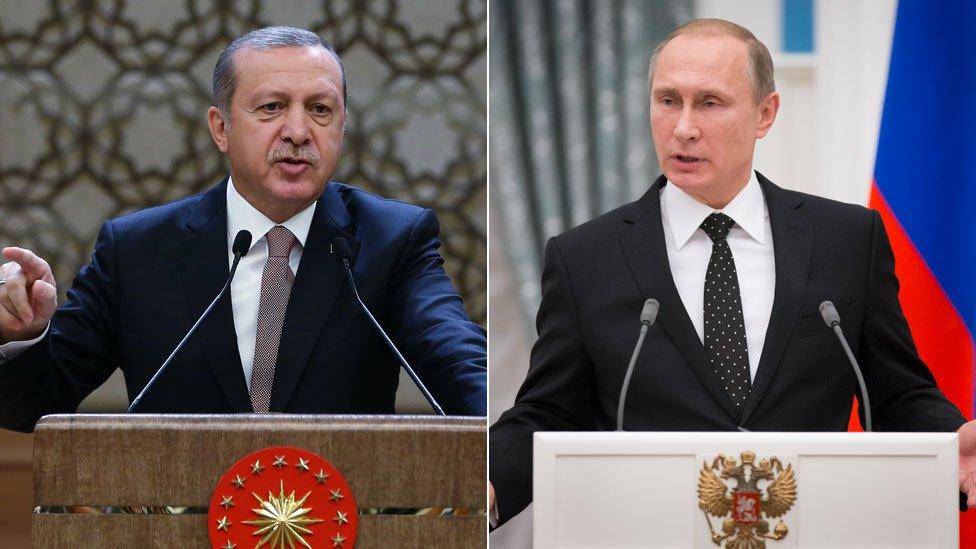Isis, Isil, IS or Daesh? One group, many names
- Published
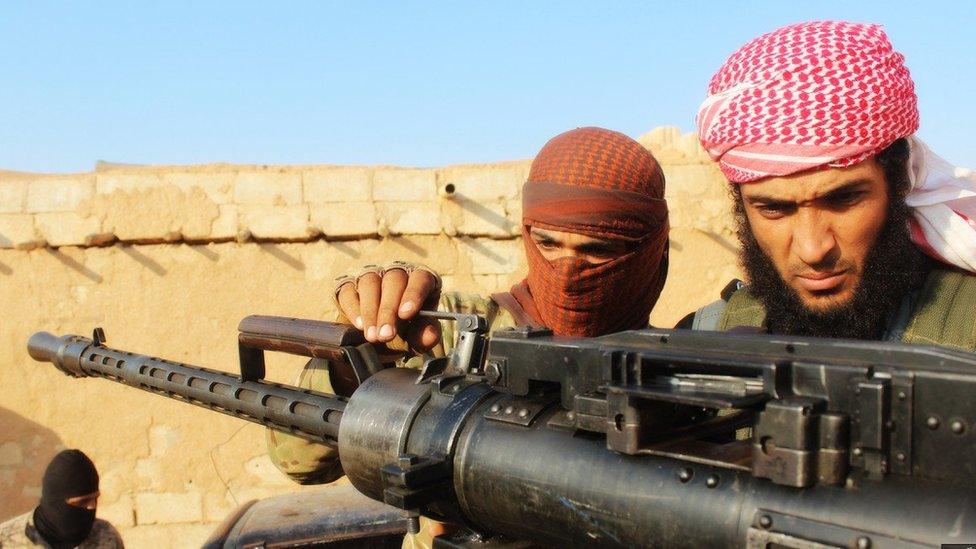
IS militants cleaning their weapons in Syria
The jihadist group which controls large swathes of territory in Syria and Iraq is sometimes referred to by different names by English-speaking governments and media.
When talking about the group - which has also spawned affiliates elsewhere in the Middle East, Africa and Asia - UN and US officials generally use the acronym "Isil", the acronym of "Islamic State in Iraq and the Levant".
The group itself has not used that name since June 2014 when it declared the creation a caliphate and shortened its name to "Islamic State" (IS) to reflect its expansionist ambitions.
Since then, BBC News has been using that term, but qualifying it as "Islamic State group" or "self-styled Islamic State" and shortening it to "IS" on subsequent mentions.
Other media have continued to use "Isil" or "Isis", which is based on the other widely used translations of the group's former name - "Islamic State in Iraq and Syria" or "Islamic State in Iraq and al-Sham".
But the term "Daesh" (or Da'ish) has also gained currency, both in the Middle East and further afield, and has been used as a way of challenging the legitimacy of the group due to the negative connotations of the word.
Daesh is essentially an Arabic acronym formed from the initial letters of the group's previous name in Arabic - "al-Dawla al-Islamiya fil Iraq wa al-Sham". Although it does not mean anything as a word in Arabic, it sounds unpleasant and the group's supporters object to its use.
Daesh also sounds similar to an Arabic verb that means to tread underfoot, trample down, or crush something.
IS, Isil and Isis
The root of the Isil-Isis inconsistency lies in the Arabic word "al-Sham".
At first, news outlets were unsure how to translate it into English, as it was not immediately clear what the group was actually referring to.
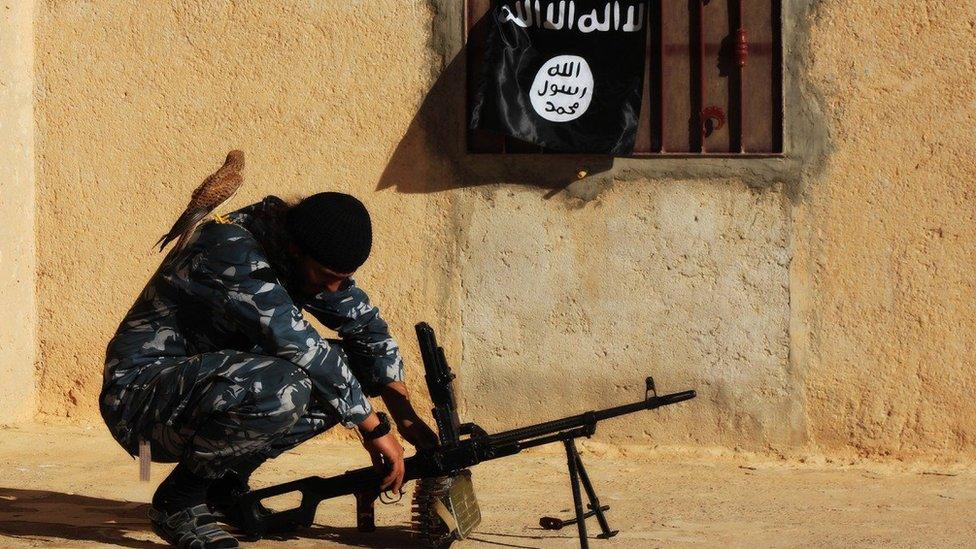
Politicians and the media are divided over what to call the Islamic State group
Al-Sham can be translated variously as "the Levant", "Greater Syria", "Syria" or even "Damascus".
The term al-Sham was commonly used during the rule of the Muslim Caliphs from the 7th Century to describe the area between the Mediterranean and the Euphrates, Anatolia (in present day Turkey) and Egypt.
It was used until the first half of the 20th Century, when Britain and France drew the new borders of the Middle East and created nation states.
The term "Levant" had for centuries been used by English speakers to describe the eastern part of the Mediterranean, with its islands and the countries adjoining.
After World War One, the colonial powers understood it to be the area comprising what is now Syria, Jordan, Lebanon, Israel, the Palestinian Territories and part of south-eastern Turkey.
However, the term's colonial association means it would be unlikely to be endorsed by the jihadists. They would also probably object to using just "Syria", as it suggests their aspirations are limited to the modern state's borders. Various experts have therefore said that the word al-Sham should not be translated.
Daesh
In the Arabic-speaking world, where the use of acronyms is otherwise uncommon, Daesh is used widely but with pejorative overtones.
The label has gained currency despite or perhaps as a direct consequence of the irritation it causes the group, and is now used widely across the world by politicians and in the media.
"Frankly, this evil death cult is neither a true representation of Islam, nor is it a state," UK Prime Minister David Cameron told Parliament in December 2015 when announcing that his government would be joining France in calling the group "Daesh" rather than "Isil".
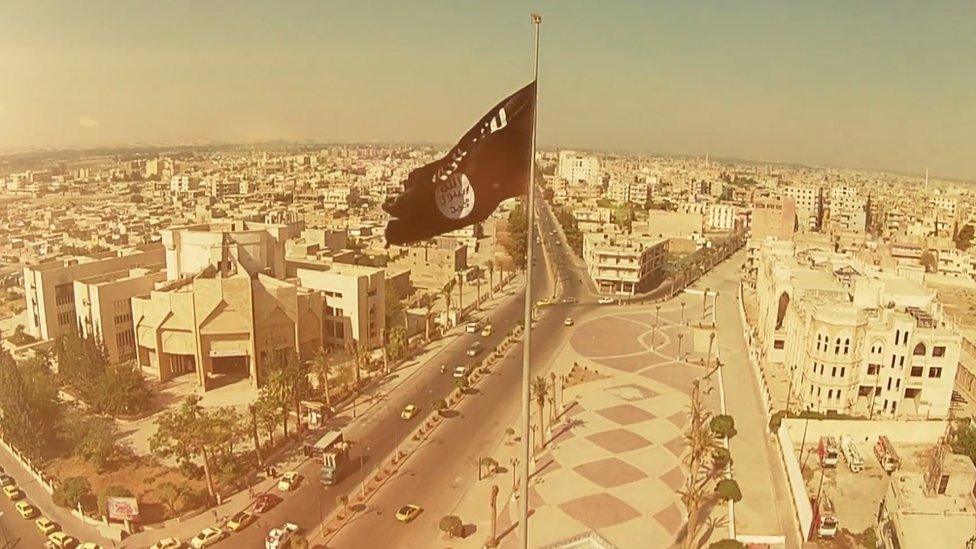
More and more politicians are choosing to call the group 'Daesh'
BBC Monitoring reports and analyses news from TV, radio, web and print media around the world. You can follow BBC Monitoring on Twitter, external and Facebook, external.
- Published27 November 2015
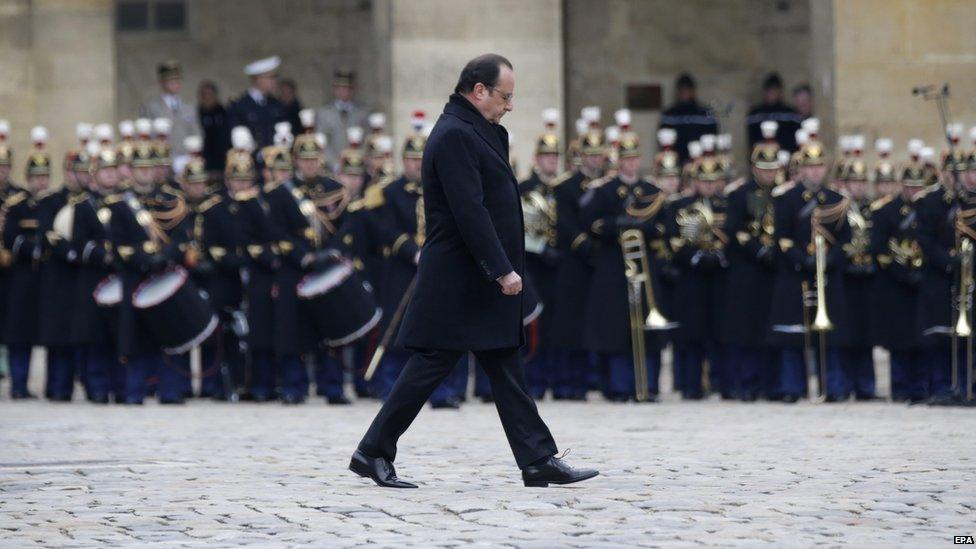
- Published26 November 2015
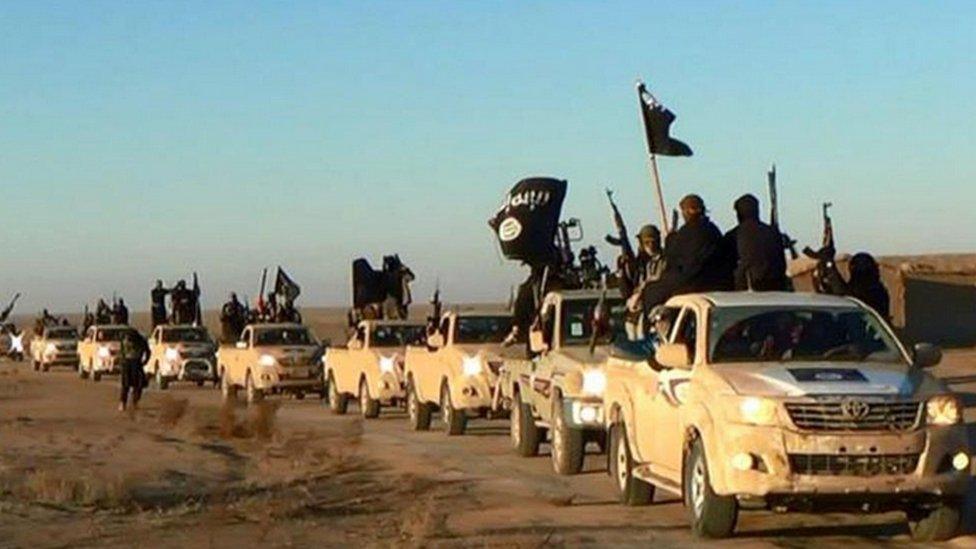
- Published27 November 2015
